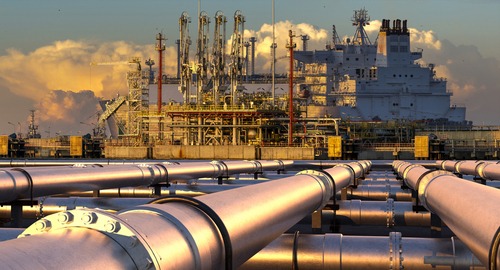
New Liquified Natural Gas (LNG) units coming online by the end of 2022 will propel the U.S. LNG export capacity to the largest in the world, the U.S. Energy Information Administration said.
According to the administration, when LNG liquification trains at Sabine Pass and Calcasieu Pass in Louisiana are placed into service, the U.S. will surpass Australia and Qatar in terms of LNG export capacity.
Train 6 at Sabine Pass will add up to .76 billion cubic feet per day of peak export capacity. Train 6 began producing LNG in November, and is expected to ship the first cargo from the train before the end of 2021. Calcasieu Pass is a new export facility with 18 liquefication trains and a combined peak capacity of 12 million metric tons per year. Commissioning activities at Calcasieu Pass started in November and the first LNG production is expected before the end of the year. All of its liquefication trains are expected to be operational by the end of 2022.
In October, the U.S. Federal Energy Regulatory Commission (FERC) approved authorizations to produce a combined 261 billion cubic feet of LNG per year at Sabine Pass and Corpus Christi LNG. These terminals will optimize operations, including production uprates and modifications to maintenance in order to achieve the increases.
An of November, the administration said, the U.S. LNG nominal liquefication capacity was 9.5 Bcf/d and peak capacity was 11.6 Bcf/d, which includes uprates to LNG production capacity at Sabine Pass and Corpus Christi.
By the end of 2022, the administration said, U.S. nominal capacity is expected to increase to 11.4 Bcf/d, and peak capacity will increase to 13.9 Bcf/d. Australia has a peak LNG production capacity of 11.4 Bcf/d, while Qatar’s peak capacity is 10.4 Bcf/d. In 2024, construction on Golden Pass LNG, the eighth U.S. LNG export facility, is anticipated to be completed, further increasing U.S. LNG peak export capacity to an estimated 16.3 Bcf/d.